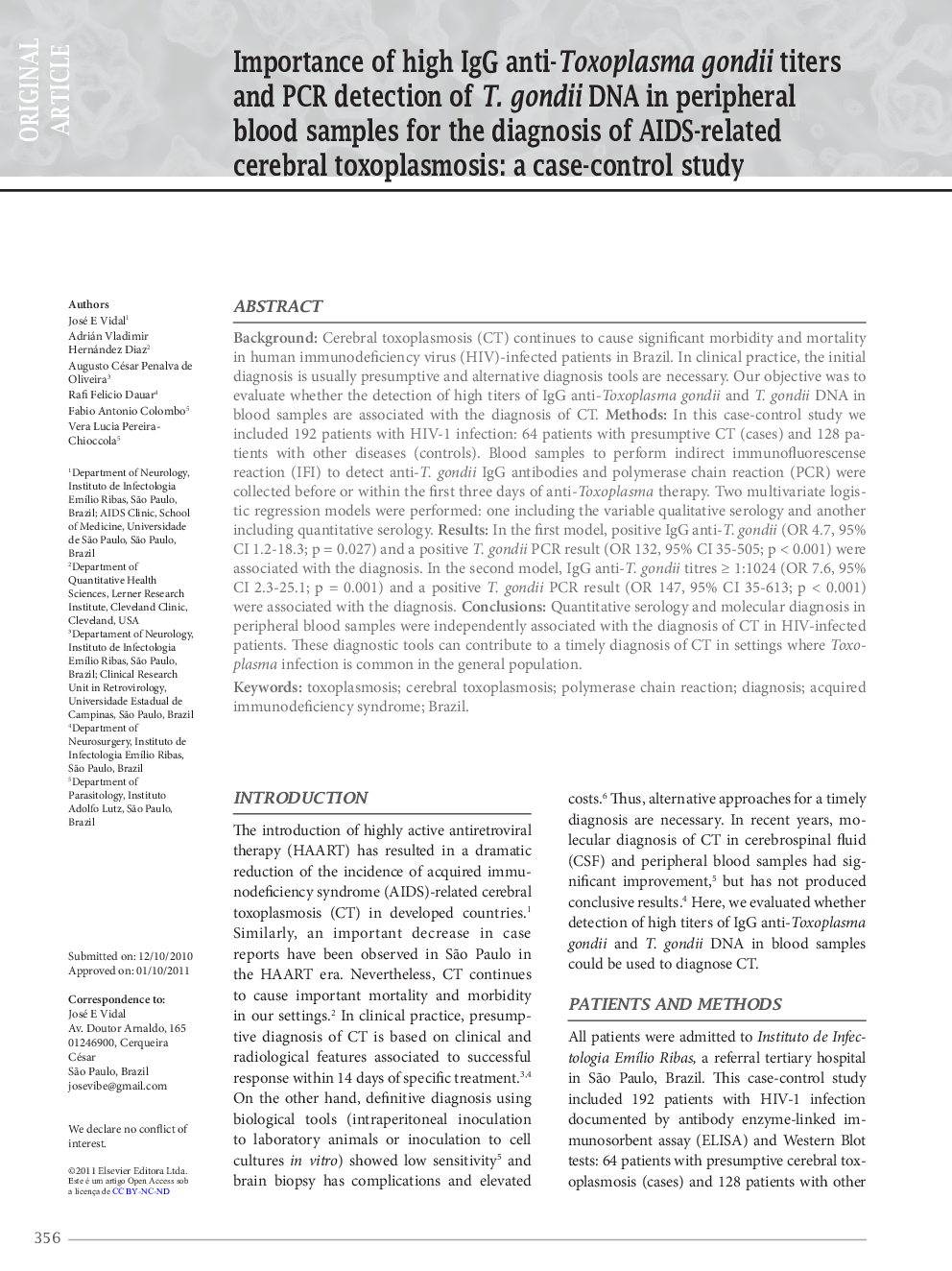| Article ID | Journal | Published Year | Pages | File Type |
|---|---|---|---|---|
| 3344515 | The Brazilian Journal of Infectious Diseases | 2011 | 4 Pages |
BackgroundCerebral toxoplasmosis (CT) continues to cause significant morbidity and mortality in human immunodeficiency virus (HIV)-infected patients in Brazil. In clinical practice, the initial diagnosis is usually presumptive and alternative diagnosis tools are necessary. Our objective was to evaluate whether the detection of high titers of IgG anti-Toxoplasma gondii and T. gondii DNA in blood samples are associated with the diagnosis of CT.MethodsIn this case-control study we included 192 patients with HIV-1 infection: 64 patients with presumptive CT (cases) and 128 patients with other diseases (controls). Blood samples to perform indirect immunofluorescense reaction (IFI) to detect anti-T. gondii IgG antibodies and polymerase chain reaction (PCR) were collected before or within the first three days of anti-Toxoplasma therapy. Two multivariate logistic regression models were performed: one including the variable qualitative serology and another including quantitative serology.ResultsIn the first model, positive IgG anti-T. gondii (OR 4.7, 95% CI 1.2-18.3; p = 0.027) and a positive T. gondii PCR result (OR 132, 95% CI 35-505; p < 0.001) were associated with the diagnosis. In the second model, IgG anti-T. gondii titres ≥ 1:1024 (OR 7.6, 95% CI 2.3-25.1; p = 0.001) and a positive T. gondii PCR result (OR 147, 95% CI 35-613; p < 0.001) were associated with the diagnosis.ConclusionsQuantitative serology and molecular diagnosis in peripheral blood samples were independently associated with the diagnosis of CT in HIV-infected patients. These diagnostic tools can contribute to a timely diagnosis of CT in settings where Toxoplasma infection is common in the general population.
